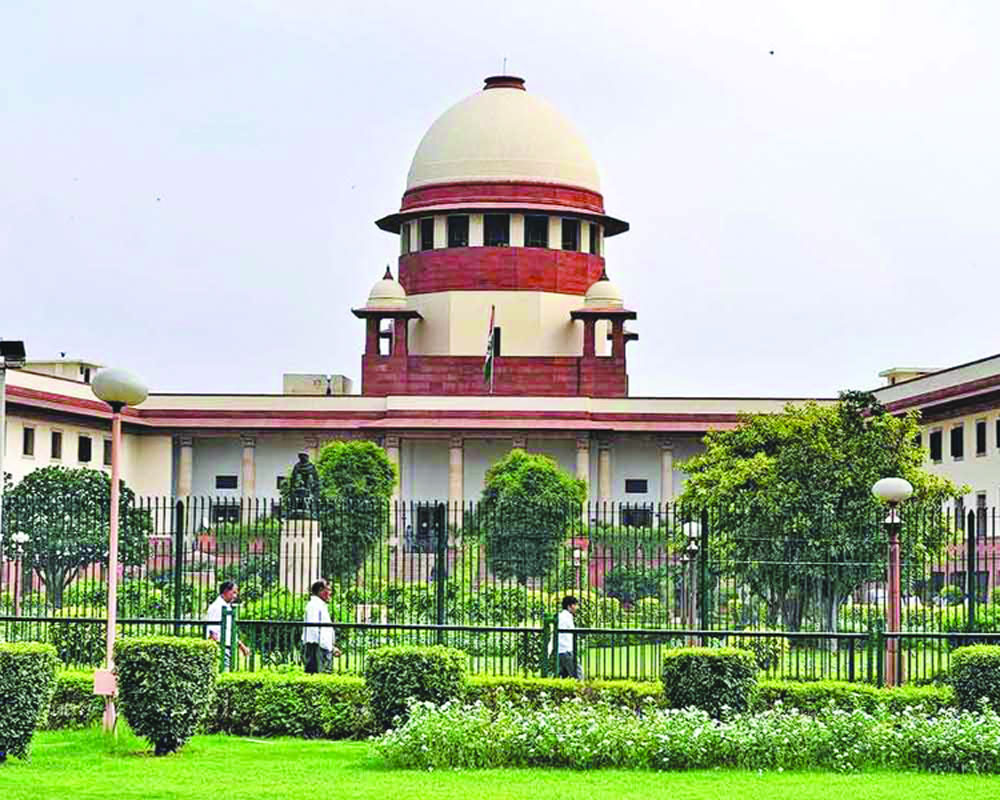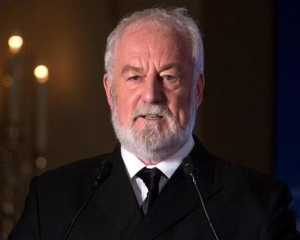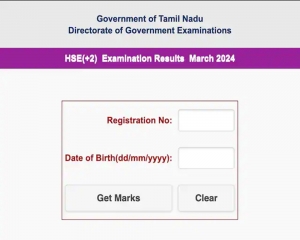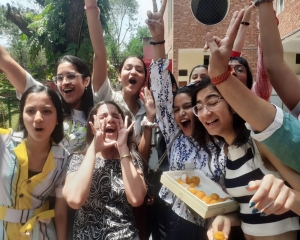Restrictions need to be placed to account for situations where the independence of the judiciary and of the civil services could be threatened
Like most people, I enjoy listening to music in my free time. Other than being an expression of art, songs are often a great medium to get a message across. Some are subtle where you have to find understated and intelligent references to the message that is hidden. However, at the same time you have songs with lyrics like “Sushant superstar, you were Bihar’s treasure... The DGP came, he faced attacks but he took the case to the CBI. (The DGP) is the pride of the nation...” It is safe to say that this music video, which was released on the same day as the voluntary retirement of the DGP, can be a lot of things but “subtle” is certainly not one of them.
The release of the music video and the reports of Gupteshwar Pandey (the DGP in question) making a foray into politics, do, however, give us an opportunity to examine the situation in the country and the question of ethical conduct by certain individuals from the Indian civil services and the judiciary, two pillars on which the modern Indian state stands. The title of this week’s piece may seem a tad ironic, especially considering that the writer himself was one time a “babu” and is now in active politics. However, having joined politics close to a decade after leaving the civil services, I believe that I can offer a unique perspective on the topic.
To be clear, this is far from the first time questions regarding the ethics of appointment or nomination of individuals who come from the civil services or the judiciary have been raised. Even in a meeting of the Constituent Assembly, this issue was discussed. Professor KT Shah moved an amendment, which contemplated restricting judges who had served for more than five years in the Supreme Court or on any of the High Courts, from being appointed to any executive office or Ministers in a Government. The intent, as explained by a supporter of the amendment, was imperative because “if the temptation of being appointed to other high positions after retirement is not removed, it will also be liable to be abused by the Executive or by any party in power and they may hold out such temptations which might affect the independence of the judiciary.” The amendment was ultimately rejected by Dr BR Ambedkar because at the time he believed that this was only a theoretical protection as the “opportunity for the executive to influence the judiciary is very small”. While there is no such restriction, the Constitution of India does lay down administrative details like retirement of judges and remuneration in the Constitution. Similarly, civil servants are granted privileges like pension after retirement. Furthermore, removing a civil servant from service is an extremely difficult proposition. The intent of such protections is to ensure that both civil servants and judges carry out their duty as contemplated under the Constitution without fear or incentive to act otherwise.
Dr Ambedkar, in all probability, believed that the individuals, who would form part of the judiciary or the civil services, would exercise their personal ethical framework and to this extent the issue of independence of these institutions would not be tarnished. However, it is becoming increasingly obvious that there is a need for us to legislate ethics and punish its abdication.
Most recently from the judicial sphere, you have the case of the former Chief Justice of India, Ranjan Gogoi, getting nominated to the Rajya Sabha. This move drew sharp criticism from judges and lawyers alike, pointing to the fact that his appointment came barely months after his tenure as Chief Justice ended. Such is the criticism around the appointment that a news personality noted that the DGP’s move to take voluntary retirement and possibly join politics would be akin to “doing a Gogoi.” Another move that attracted criticism was of a Central Vigilance Commissioner joining a large corporate house immediately after retirement. But like I said, this is not about one particular instance. According to a study done by Vidhi, a legal think tank, close to 70 out of over a hundred retired judges have taken up assignments after their retirement. Unfortunately, this is inevitable considering the number of statutory authorities that require a retired judge to hold office under their parent statute.
Therefore, what is the way ahead? It is obvious that relying on the integrity of individuals to take the right call every time is not a tactic that has worked. While there are a number of individuals who have displayed and continue to display courage, integrity and a strong conscience, the damage by a few to the institutions that they have served can be so scarring that its impact would be felt on the core foundations of a democratic republic such as ours. Therefore, there is a need to legislate to account for situations where the independence of the judiciary and of the civil services may be threatened. One solution is to do away with post-retirement posts and to appoint only senior personnel who are currently serving as judges or civil servants. Another option is to legislate like the US has done, where in case of former senior civil servants (in certain departments) there is a permanent ban on appearing before Government authorities on matters where they may have participated personally or substantially. An alternative restraint could be establishing a separate authority like the Union Public Service Commission (UPSC), as former civil servant Anil Swarup talks about in his book Ethical Dilemmas of a Civil Servant. Swarup suggests that the UPSC can be tasked with shortlisting candidates for post-retirement assignments instead of leaving such decisions to the whims and fancies of any Government in power. I would add that the criteria for such appointments should be made public and be through a points system. There are many possible solutions but in order to implement any solution, we need to first accept that there is a problem and that there is a dire need for a structural solution.
As said by Dr Martin Luther King, “The arc of the moral universe is long but bends towards justice.” Therefore, I am hopeful that in the long run our institutions will survive, not least because of the many righteous individuals who serve these institutions. I am hopeful that the examples that exist today will only serve as examples to future generations to keep their guard up, similar as to how examples from the Emergency serve as examples for today. However, with the benefit of hindsight, if Dr Ambedkar had a chance to discuss Professor KT Shah’s amendment in the Constituent Assembly today, I have a feeling that the outcome would be quite different.
(The writer is a former IPS officer, a former MP and currently a member of AAP)


























